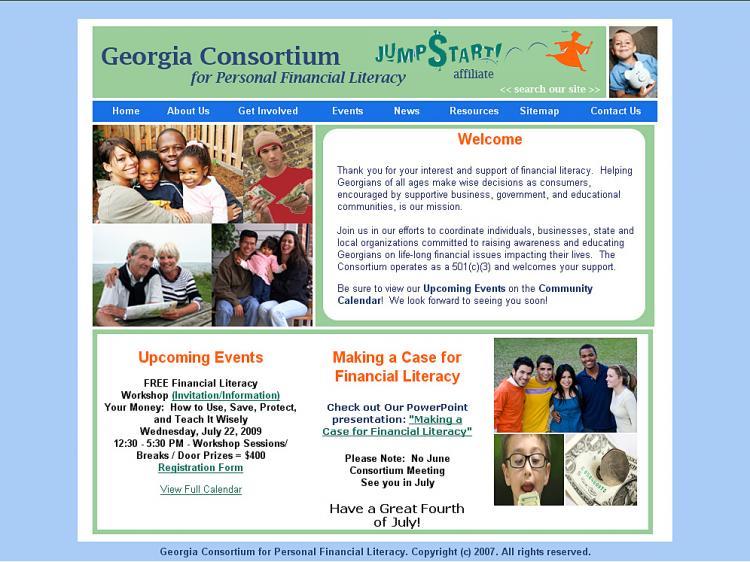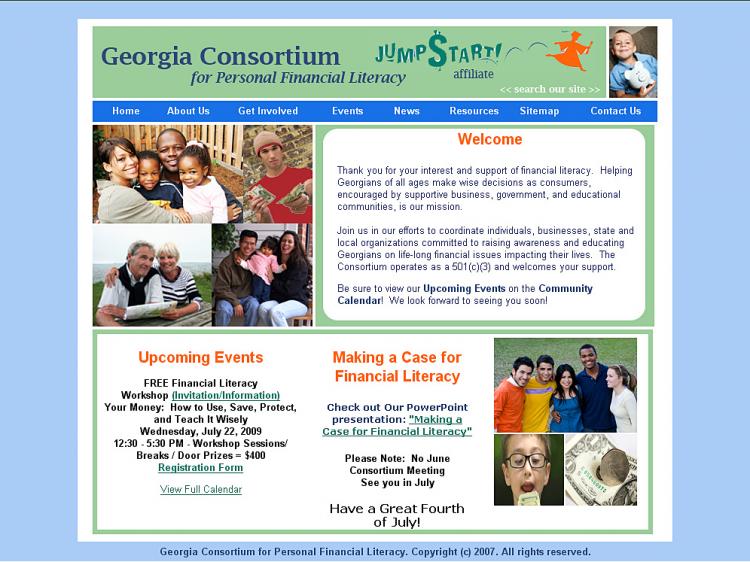When she hired Ganser to help her invest, Ganser complimented her on her achievement.
“There’s a switch in our brains [to save money]. If it’s flipped, we get it. I got it,” the client told her.
Ganser is a member of the Georgia Consortium for Personal Financial Literacy. Director Nancy Schwartzmiller organized a free workshop for teachers on July 22 in Atlanta. The not-for-profit group provides volunteer speakers and materials to help people master their money. Speakers from the Federal Trade Commission (FTC), the Georgia Department of Consumer Affairs, the Georgia Society of CPAs and others do pro bono work through the consortium.
The members want to help people flip that switch.
Ganser described the components of financial knowledge. Self discipline and the will to be rational about financial decisions is one. “The heart is not always wise,” she said. She knew a lawyer who makes a comfortable income. He promised he would send each of his five children to any college, anywhere they wanted, despite the fact that Georgia has the HOPE scholarship which pays in state college tuition for anyone with good grades.
“It was not a financially wise choice,” said Ganser. He made the promise because his father told him he would only pay to send him to the college in their local town. As a boy, he vowed that he would offer his children what his father refused him.
But college costs have increased exponentially over the past 30 years. Paying for private college is the equivalent of purchasing a luxury car every year.
One reason the consortium created a workshop for teachers is so students can learn what they need to know to emerge from college without crushing debt. Between student loans and overuse of credit cards, some students finish college saddled with debt, crippling their ability to travel, to start a business, to establish a household, or to handle a financial emergency.
Debt creates stress and restricts freedom.
“Some people I knew were fighting about money. I wanted them to stop,” said Mechel Glass. She created board game to educate teenagers about money management. Players start with credit card debt and play around the board, rolling dice to get cards representing a raise, a car repair, and other financial events. Each player chooses what to do with the resources. The first player to wipe out his debt and build a reserve fund wins.
Glass created the game while laid off, trademarked it, and sold it. Consumer Credit Counseling (CCC) bought her game and hired her. “Some concepts, kids are not open to. The game can open minds,” said Glass. CCC donated dozens of the games to be raffled off for the teachers.
Fraud proofing yourself as much as possible is another essential money skill. Even sophisticated investors fell victim to the decades-long Ponzi scheme run by Bernie Madoff. Ganser said the best protection against fraud is to slow yourself down, ask many questions, and remember that lower risk always means lower yields.
“Be skeptical. Always ask why,” said Ganser.
Cindy Liebes, Assistant Regional Director of the Federal Trade Commission, offered more fraud proofing tools. The FTC keeps a database of all complaints about identity theft, and other fraud from false advertising to pyramid schemes. Liebes says the simple precaution of getting one’s annual free credit report from all three credit reporting agencies is a good start.
Smiling wryly, she reminded the audience to beware of Internet sites which appear to be free but in fact enroll the user in a fee-based annual credit monitoring service.
Saving, making rational choices, using credit wisely, and fraud proofing are the essential components of financial literacy for students, according to the experts of the Georgia Financial Consortium.
Understanding taxes and fees for various investments such as annuities and mutual funds are essential for adults. Knowing the right way to balance a portfolio, understanding compounding and nurturing one’s self discipline are skills which can help people navigate even the trickiest economic times.
Please visit www.georgiaconsortium.org to learn more.







